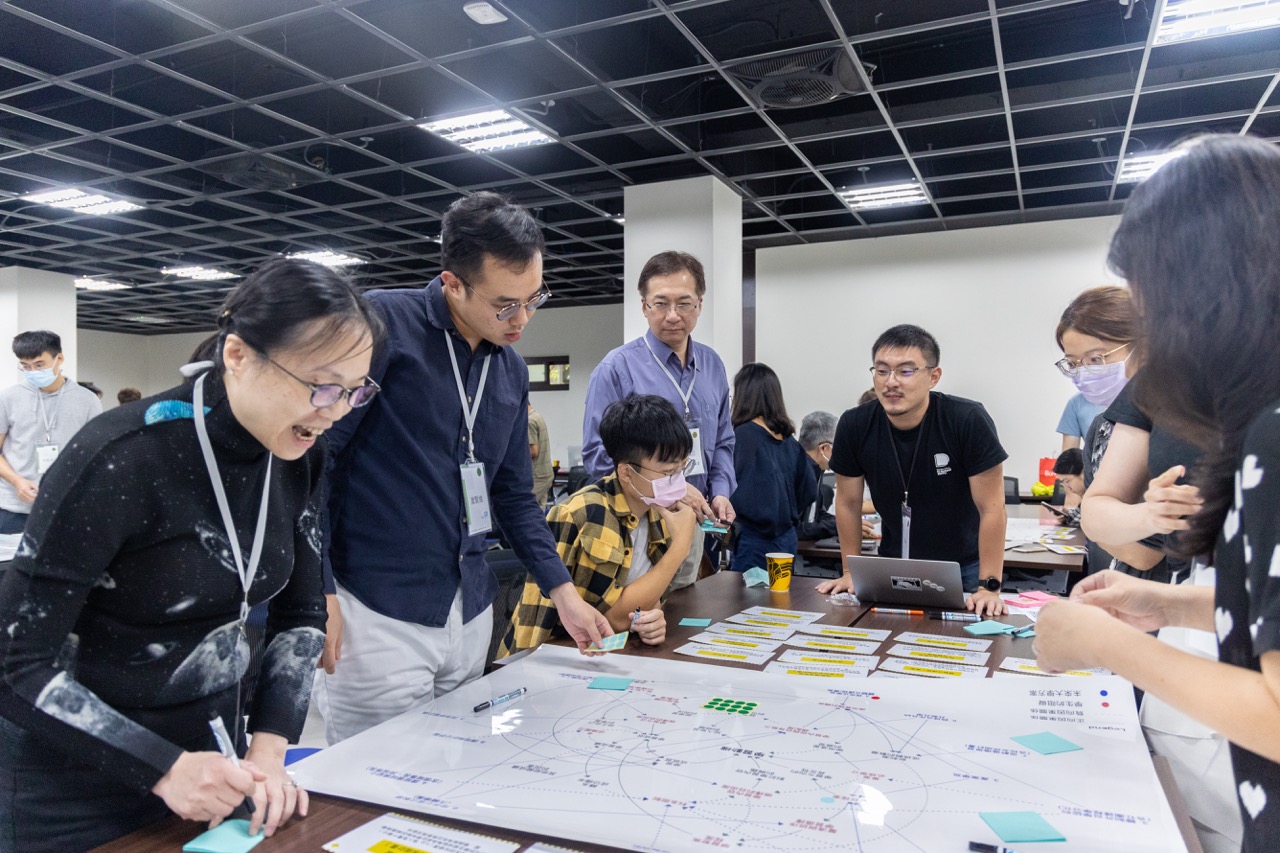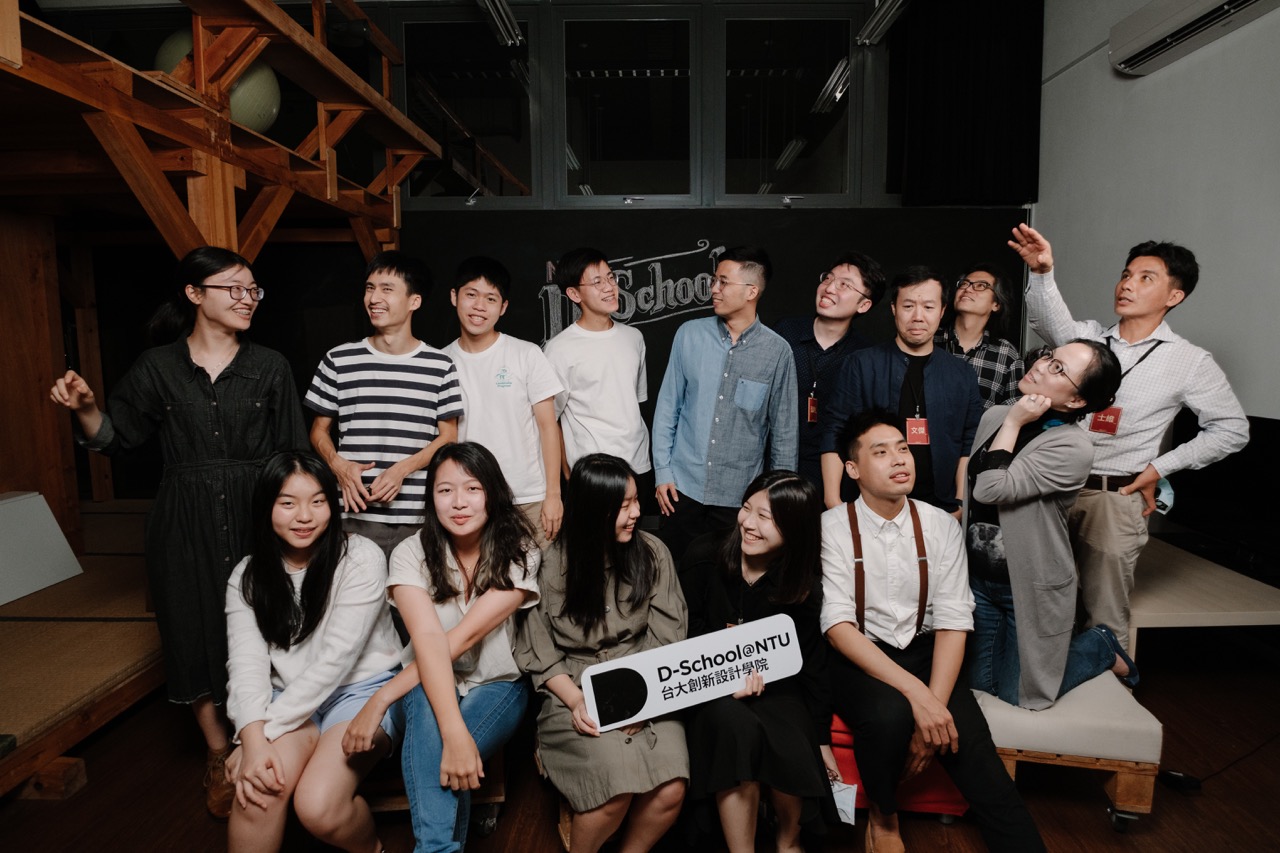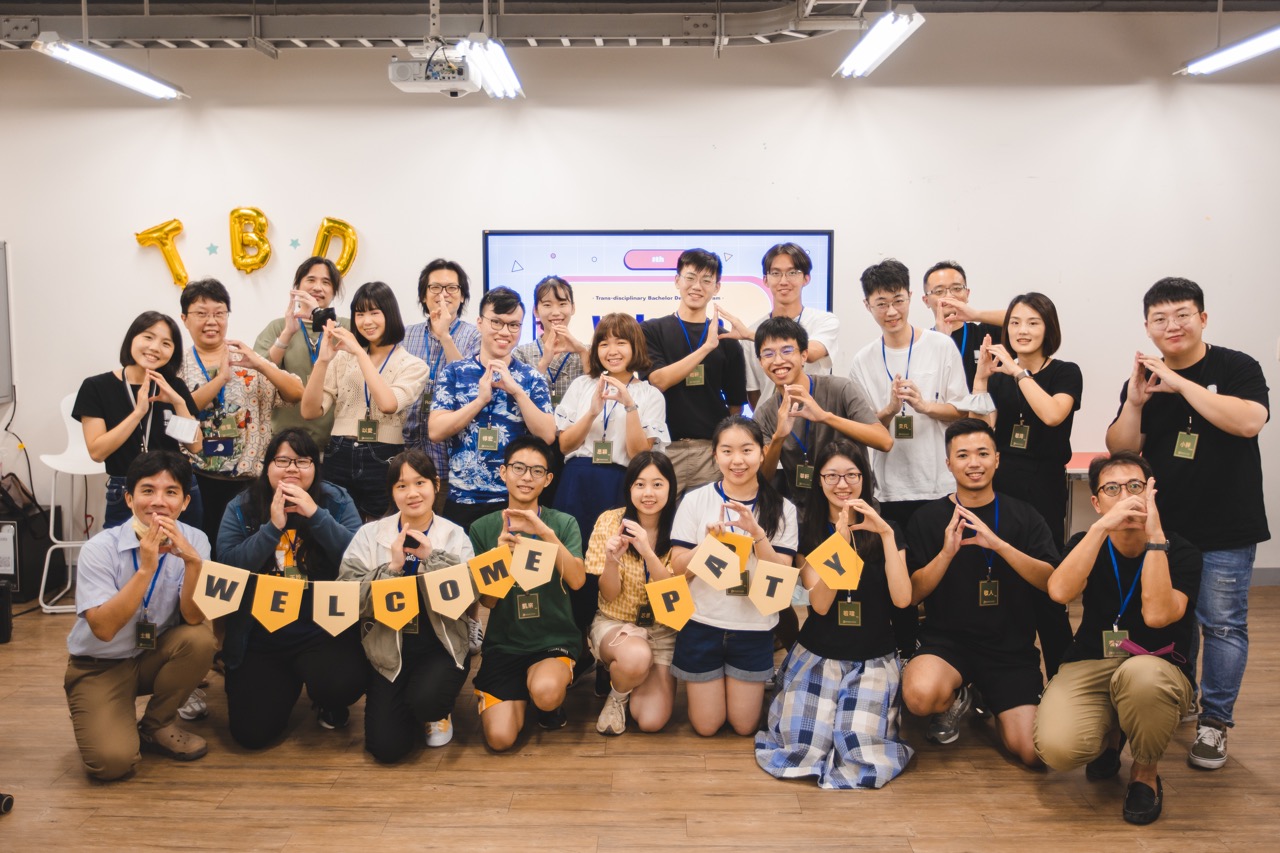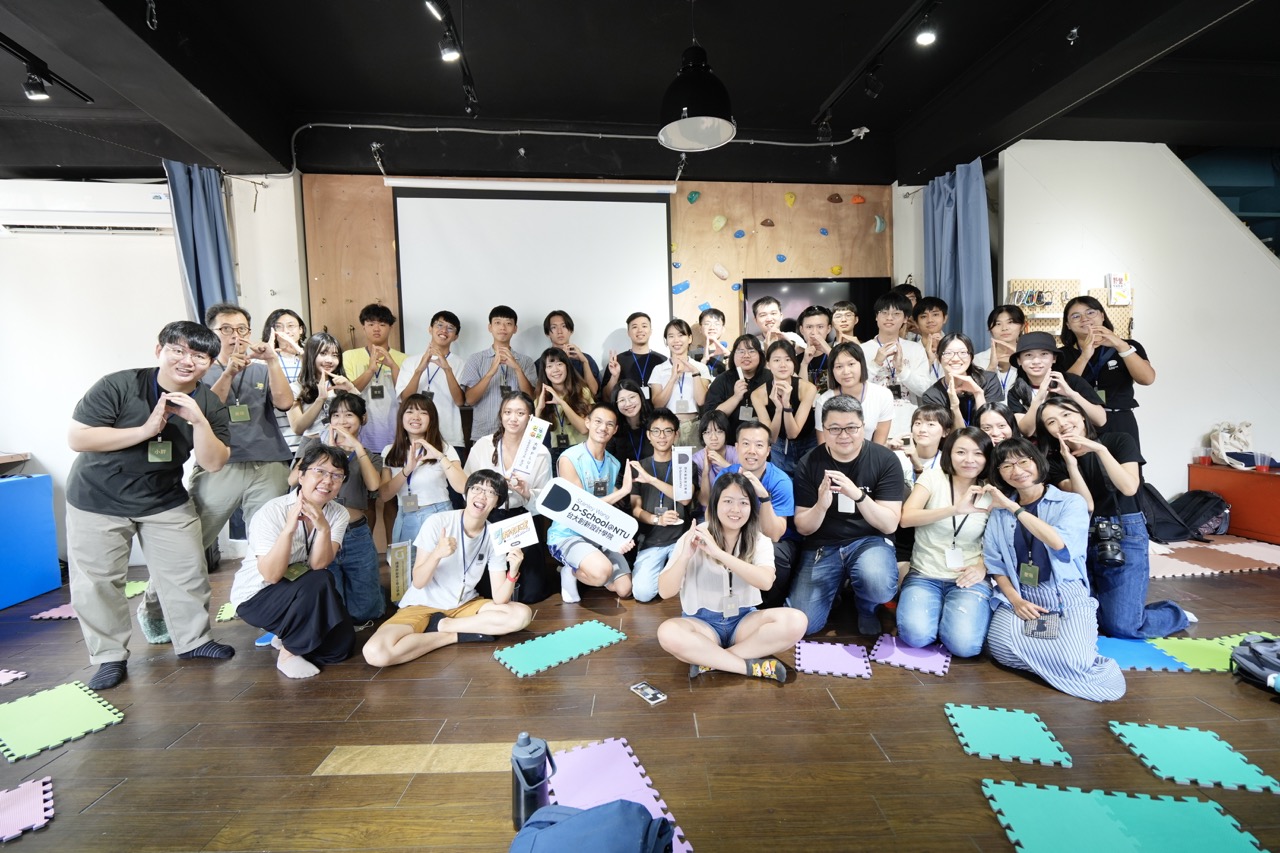「透過跨領域學習環境,培養能夠創造新興領域的創新人才。」
"Through an interdisciplinary learning environment, we cultivate innovative talents capable of creating new fields."
創新領域學士學位學程於 2022 年正式成立,目前招收校內大二以上之雙主修、轉系生,每位學生都有自訂的創新領域主題,並以該主題為核心,延伸出個人的修課規劃、訂定自己的大學課表,畢業 128 學分中有 90 學分的課程可以根據自己的創新領域主題決定。而在打開制度的彈性之外,學習過程中也將輔以學習教練、指導老師等學生支持系統,協助學生逐步完成創新領域主題,並透過「自我探索、跨域專長、移地學習、專題實作」四大架構,引導學生培養主動學習能力,促使學生能迅速回應變動快速的社會與複雜議題。
Trans-disciplinary Bachelor Degree Program was officially launched in 2022. Currently, this program is open to sophomores and above for double majors and change of major. Each student designs their own trans-disciplinary topics, which serves as the core of their personal curriculum planning and university course scheduling. Of the 128 credits required for graduation, 90 can be chosen based on the student’s trans-disciplinary topics.
Aside from the flexibility of the system, the learning process is also supported by a supporting system including learning coaches and mentors, helping students complete their trans-disciplinary projects step-by-step.Through four key frameworks—’Self-Discovery,’ ‘Trans-Disciplinary Expertise,’ ‘Off-Site Learning,’ and ‘Special Topics’—this program aims to cultivate the proactive learning abilities of students, enabling them to quickly adapt to a rapidly changing society and complex issues.
「如果我們依循過去來教育現在的學生,我們就在搶奪他們的未來」 [Dewey, 1916]。
” If we teach today’s students as we taught yesterday’s, we rob them of tomorrow. ” – John Dewey, 1916
隨著全球化、數位化的發展,時代科技進步,加上產業結構面臨轉型,社會與業界對於人才的需求開始轉變。不同於過去從事同一份工作直到退休的模式,未來可能每五年就會轉換一次不同性質的工作,因此持續學習新知的需要將成為常態。
然而,現今學生的知識學習管道日趨多元,當學生未來離開校園時面對的是快速變動、目前尚未發明的職場環境,學校在傳授專業能力之外,更重要的任務是回應社會變遷快速以及社會議題複雜度。
面對這樣的趨勢,大學必須做出改變,以因應未來龐大的動態學習需求。
With globalization and digitalization pushing forward, and industrial structures evolving, the demand for talent in both society and industry is changing. Unlike the past where one might remain in the same job until retirement, the future could see individuals switching jobs every five years, which makes continuous learning essential.
However, as students today have increasingly diverse channels for learning knowledge, they will face a rapidly changing and as-yet uninvented job environment when they leave school. Beyond imparting professional skills, a school’s more crucial task is to respond to the rapid societal changes and the complexity of social issues.
In response to these trends, universities must make changes to meet the vast dynamic learning needs of the future.

「以學習者為中心的未來大學。」
“A future university centered around learners.”

臺大自 2019 年 9 月,舉辦了上百場的「未來大學工作坊」,由下而上找了學生及老師,共超過 1500 人次參與,最終在 2020 年 10 月發表了 2028 未來大學願景,其中包括以校內招收雙主修或轉系學生為主的「創新領域學士學位學程」。
本學程以學習者為中心,強調以學生專題為主軸進行跨領域學習,輔以「陪伴引導式教學」與「領域專長認證」,培養學生自主學習,應變整合創新的能力。
Since September 2019, National Taiwan University has hosted over a hundred ‘Future University Workshops,’ with more than 1,500 students and teachers participating. In October 2020, the ‘2028 Future University Vision’ was announced, which includes an trans-disciplinary bachelor degree program focused on admitting students for double majors or switching majors.
*關於未來大學 About Future NTU:https://www.future.ntu.edu.tw/
「創新不是孤獨的旅程,而是知識的合作和共創。」
“Innovation is not a solitary journey but a collaboration and co-creation of knowledge.”

學程自 2021 年招募第零屆學生(Pilot)以來,學生、教師、行政同仁、學習教練就試著在面對一個不完美、未完成的制度的情況下,共同討論學習過程中遇到的每一個問題,並在解決每一個問題的過程中確認彼此的需求與願景。
因為對我們而言,建立一個開放成長的學習社群,是創新領域最重要的事情。
Since the recruitment of the pilot cohort in 2021, students, teachers, administrative colleagues, and learning coaches have collaboratively discussed every issue encountered in the learning process within an imperfect yet evolving system, constantly clarifying mutual needs and visions throughout the problem-solving process.
And that is because, for us, establishing an open and growing learning community is the most crucial element of the trans-disciplinary program.



